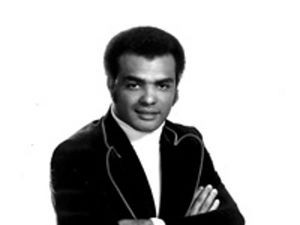 We like to think that racism is behind us in this country. We like to point to our African-American president as the proof of that. But no one knows better than Barack Obama how racist this country remains, and last week another ugly event reminded us that we still have a long way to go in that regard.
We like to think that racism is behind us in this country. We like to point to our African-American president as the proof of that. But no one knows better than Barack Obama how racist this country remains, and last week another ugly event reminded us that we still have a long way to go in that regard.
Nine people were gunned down in the historic Emanuel AME Church in Charleston. They were murdered by a 21 year-old racist who sat with their Bible study group for an hour before pulling out a gun. He was welcomed to the church because that’s what parishioners at Mother Emanuel do and have always done. When the killer was arraigned the next days family members and friends of the deceased were given a chance to speak in court. Through their anguished tears they somehow found it in their hearts to offer forgiveness to the murderer who had taken their loved ones. The next time someone mentions “Christian values” remember the people who spoke that day.
In addition to the clear racism of the act, it was also another example of gun crime. I have strong feelings on that issue, but when those little kids were murdered in Connecticut and Congress was unwilling to enact even the most watered down gun legislation in the wake of that tragedy, I gave up hope that we would ever do anything about guns in this country. Now the media has chosen to focus on the Confederate flag. I agree that it should come down, should have come down a long time ago, but it’s a sideshow to distract us from the gun issue. And if it’s not a flag, they will focus on mental illness. Anything but guns. Hopeless.
There are songs that are timeless in the sense that they can always be pulled out at the appropriate time to address an ongoing concern. “Why Can’t We Live Together” by Timmy Thomas is one of those songs. Thomas came from Indiana and early on he was part of a group called Phillip & the Faithfuls that recorded for Goldwax Records. In 1964 the group’s singles releases included “Love Me,” “What’Cha Gonna Do,” and “If You Love Her.”
Eventually Thomas settled into a role as a session musician in Memphis. He continued to record for Goldwax, but as a solo artist. In 1967 he released “Have Some Boogaloo” and “It’s My Life” for the label. Three years later Thomas moved to Climax Records where he released “What’s Bothering Me.” But success proved elusive for Thomas until he moved on to Glades Records, a subsidiary of Henry Stone’s legendary T.K. Productions, in Miami.
There, at the end of 1972, Thomas released “Why Can’t We Live Together,” and it was a smash. The deceptively simple single, which features an organ riff played over a primitive drum machine, and Thomas’ plea for understanding, rocketed to #1 on the R&B chart, and #3 on the Billboard Hot 100. The funky, hopeful follow-up single, “People Are Changin'” b/w “Rainbow Power” charted as well, but not nearly at the level of “Why Can’t We Live Together.”
Thomas released six more singles for Glades, but while some of them were minor R&B hits, none made the Top 100 on the pop chart. From 1976 through the end of the decade Thomas continued releasing records on both the Glades label as well as the T.K. Disco label. In 1984 his “Gotta Give a Little Love (Ten Years After)” for Gold Mountain Records went Top 30 on the R&B chart.
In the ’90s Thomas worked as a producer for LaFace Records, and he released his most recent album, With Heart and Soul, in 1994. It would be simple to dismiss Thomas as a one-hit-wonder, and people often do, but the fact is that he continued to have success on the R&B charts for a number of years. And that one undeniably big hit that Thomas did have remains a compassionate touchstone in the quest for harmony and understanding that we continue to struggle with in this country.






Comments